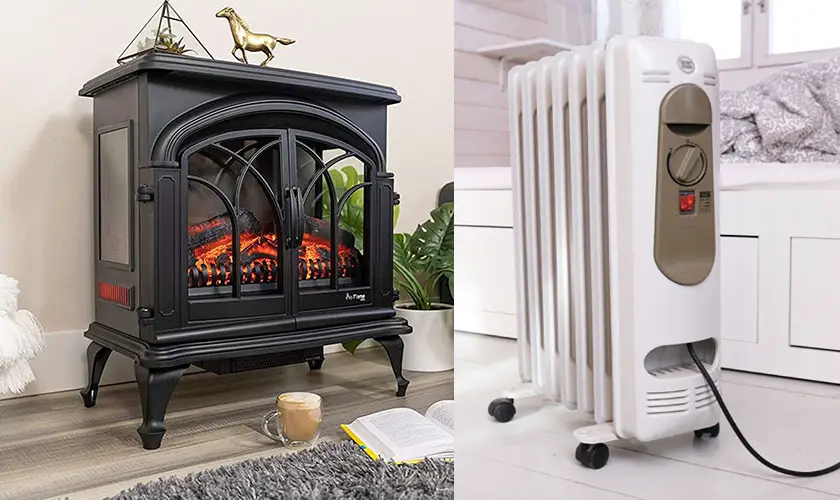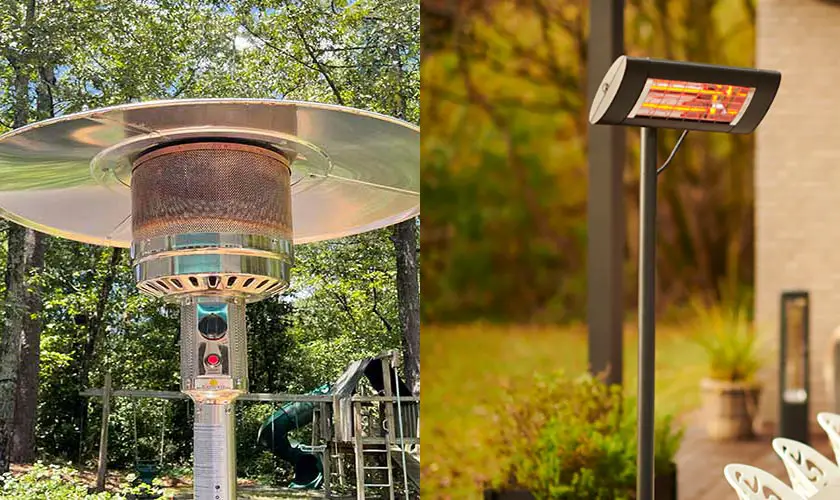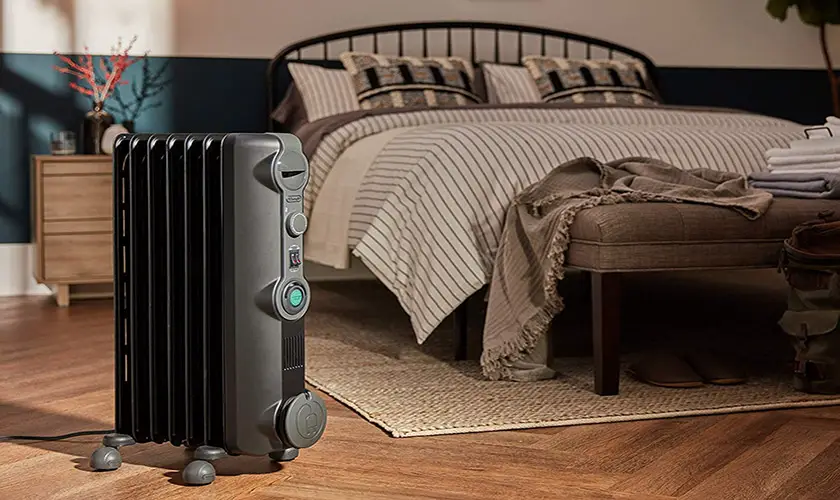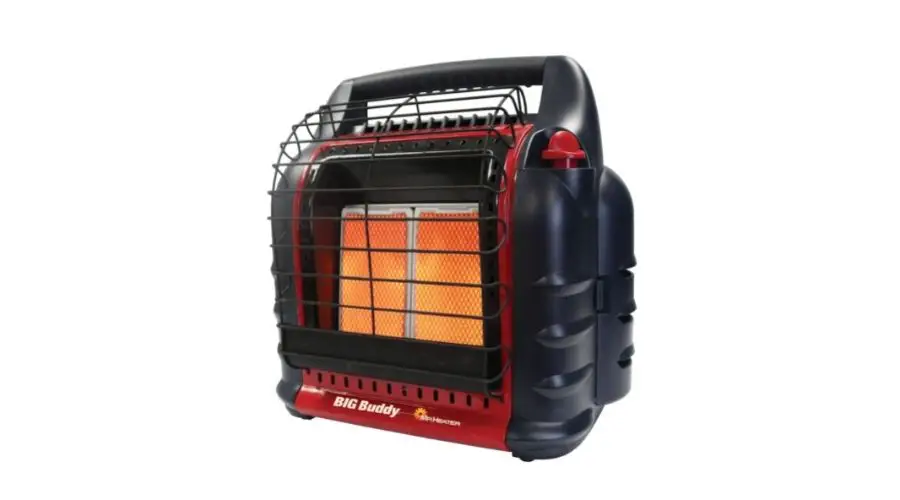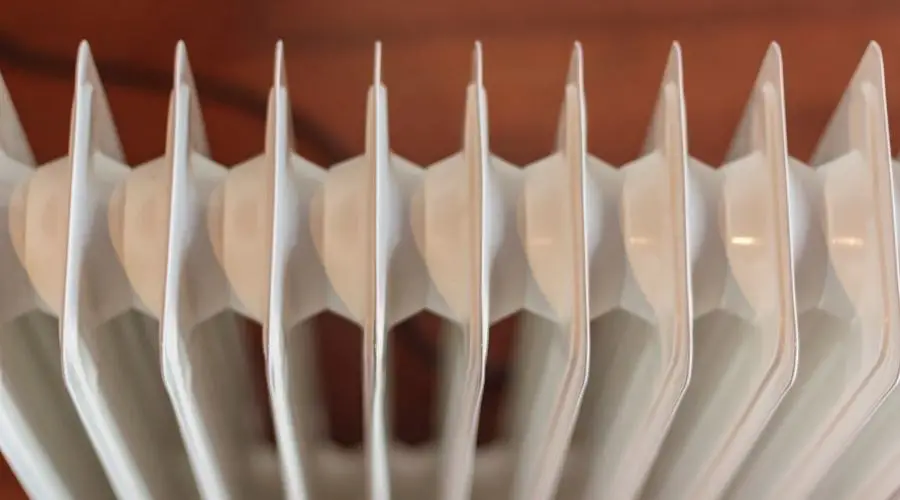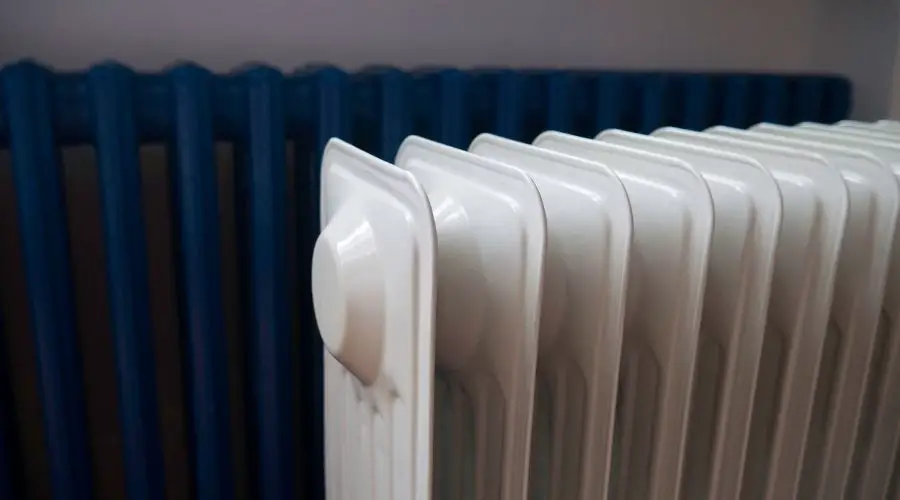If you’re considering buying a heater, you may wonder, “Are propane heaters safe indoors?”
Most portable propane heaters are safe for indoor use. Ensuring they have proper ventilation and safety features like a carbon monoxide detector and an automatic shutoff mechanism is crucial.
Always follow the manufacturer’s guidelines and regularly check for any signs of malfunction or leaks. Having a carbon monoxide detector near the heater is also a good idea.
What Are Propane Heaters?
Imagine having a little gadget that gives you warmth on those chilly days. That’s what a propane heater does! It’s like a mini fireplace that you can move around. But instead of wood, it uses propane as its fuel. Now, you might wonder, “What’s propane?” Well, think of it as a close cousin to natural gas. They’re both used to heat homes, but they work a bit differently.
- Propane Heaters: These heaters have a special tank filled with propane. When you turn them on, the liquid propane changes to gas and burns to give you warmth. It’s like magic, but with science!
- Natural Gas Heaters: These are a bit different. Instead of a tank, they’re connected to a gas line in your house. When you turn them on, the natural gas burns and heats your space.
Can You Use a Propane Heater Indoors?
You’re considering getting a portable propane heater to keep your room toasty during those cold months, right? It’s a great idea, but let’s chat about safety first. After all, you want that warm and fuzzy feeling without any worries.
First things first, propane heaters are designed with safety in mind. Manufacturers know you’re bringing them into your home, so they’ve added features to keep you and your family safe. But, like any appliance, it’s all about how you use it.
Carbon Monoxide Concerns:
When propane burns, it can produce carbon monoxide, an invisible and odorless gas. Too much of it is not good for you. But don’t fret! Many indoor propane heaters come with built-in sensors that detect high levels of carbon monoxide and shut off automatically.
To be safe, always have a carbon monoxide detector in your home. It’s like a little guardian watching over you.
Fire Safety:
Propane is flammable, which means it can catch fire. But remember, so can many things in your home, like paper or fabric. The key is to be smart. Keep your heater away from flammable items, and always ensure it’s on a stable surface. No teetering on the edge of a table, okay?
Ventilation is Vital:
Fresh air is a propane heater’s best friend. Make sure the room you’re using it in has good airflow. Open a window or door slightly if you need to. This ensures any gases produced are quickly whisked away.
Automatic Shutoff:
This is a nifty feature many propane heaters have. If they tip over or detect too much carbon monoxide, they turn off themselves. It’s like having a built-in safety net.
Regular Check-ups:
Just like you visit the doctor for a check-up, regularly give your propane heater a once-over. Look for any signs of wear and tear or damage. If something seems off, it’s time to call in the experts or consider getting a new one.
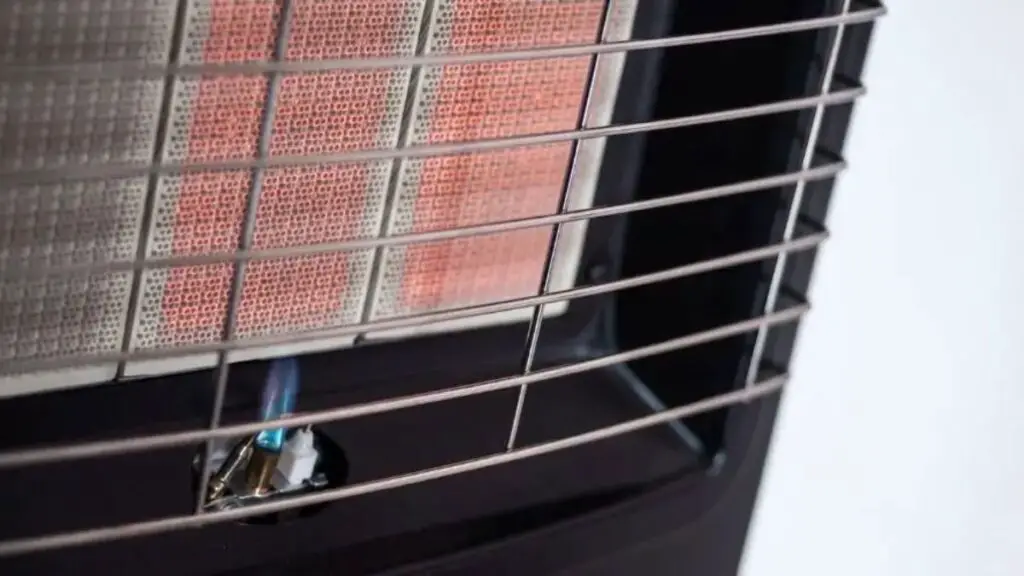
Risks of Using Propane Heaters Indoors
Alright, let’s get real for a moment. While portable propane heaters are fantastic for keeping you warm, there are some risks you should be aware of. It’s like riding a bike; it’s fun and useful, but you must know the potential dangers to stay safe. So, let’s dive deep into the risks of using propane heaters indoors.
The Silent Threat – Carbon Monoxide:
When propane burns, it can produce carbon monoxide (CO). CO is sneaky because you can’t see or smell it. In large amounts, it can make you feel dizzy, give you a headache, or even be fatal.
That’s why ensuring your room has good ventilation when using a propane heater is super important. And remember, always have a carbon monoxide detector in your home. It’s a small device that can be a real lifesaver.
Fire Hazards:
Propane is flammable. That means it can ignite if it leaks and comes into contact with an open flame or spark. To avoid this, ensure your propane tank is in good condition and there are no leaks. Also, keep your heater away from things that can easily catch fire, like curtains or piles of paper. It’s all about being proactive and preventing any potential fire situations.
Tipping Over:
Some propane heaters might be a bit top-heavy; if they tip over, they can cause a fire. But, many modern heaters come with a tip-over switch that automatically turns them off if they fall. Still, always place your heater on a flat, stable surface.
Lack of Oxygen:
Propane heaters need oxygen to burn the propane. If there’s not enough fresh air, the heater can use up the room’s oxygen, leading to potential breathing problems. It’s rare, but it’s something to be aware of. So, if you’re using a propane heater in a small room, crack open a window or door to ensure a steady supply of fresh air.
Improper Installation:
If you’re using a more permanent propane heater that requires installation, it’s crucial to get it done correctly. An improper installation can lead to gas leaks or inefficient burning, which can be dangerous. Always hire a professional or follow the manufacturer’s instructions in the letter.
Using Outdoor Propane Heaters Indoors:
Some propane heaters are designed only for outdoor use. They produce more heat and gases than indoor heaters. Using them indoors can lead to a buildup of harmful gases. Always check the label and ensure you use the right heater for space.
Ignoring Maintenance:
Like any device, propane heaters need some TLC. Regularly check for any signs of damage, wear, or malfunction. A well-maintained heater is a safe heater.
This might seem like a lot, but don’t be overwhelmed. Every appliance or gadget has its risks. Think about it; even your smartphone must be used carefully to avoid issues. The key is to be informed and cautious. By understanding the risks and taking steps to prevent them, you can enjoy the warmth of your propane heater without any worries.
Tips for Using an Indoor Propane Heater Safely
Hey there! So, you’ve got yourself a propane heater, or you’re thinking about getting one. That’s awesome! These heaters are like little boxes of warmth, perfect for those chilly days. But, just like with any tool or gadget, you’ve got to use it the right way. Let’s chat about how to make the most of your propane heater while keeping everything safe and sound.
Know Your Heater:
Before you even turn it on, take a moment to read the manual. I know, I know, it might seem boring, but it’s packed with helpful info. It’ll tell you how to set it up, how to use it, and what to avoid.
Perfect Placement:
Always place your heater on a flat, stable surface. Avoid putting it on carpets or rugs, which can block the vents. And remember, keep it away from flammable stuff like curtains, papers, or that pile of clothes you’ve meant to put away.
Ventilation is Key:
Fresh air is super important when using a propane heater. Make sure the room has good airflow. If you’re in a small space, crack open a window or door just a bit. It helps keep the air fresh and reduces the risk of any gas buildup.
CO Detectors are Your BFF:
Carbon monoxide (CO) is a sneaky gas you can’t see or smell. Since propane heaters can produce CO, having a CO detector in your home is wise. It’ll beep loudly if it detects any carbon monoxide, alerting you to potential danger.
Use a Humidifier to Combat Dry Air
Using a humidifier is an effective way to increase the humidity levels in your home. Portable propane heaters will dry the air, removing nearly all moisture.
It can help keep you comfortable, reduce static electricity, and protect wood from drying out and cracking. To get the most out of your humidifier, use it regularly and adjust the settings to 40% to 50%.
Keep a Safe Distance:
Think of your heater as a little campfire. You wouldn’t stick your hand in a campfire, right? So, keep things that can burn, like furniture, pillows, or your pet’s tail, at least three feet away from the heater.
Automatic Shutoff is a Lifesaver:
Many propane heaters have a feature where they turn off if they tip over or if the oxygen levels drop too low. It’s like a built-in safety net. If yours has this feature, make sure it’s activated.
Regular Check-Ups:
Just like you go for a check-up at the doctor, give your heater a little inspection now and then. Look for any signs of damage or wear. It might be time for maintenance if the flame looks weird or makes a strange noise.
Turn It Off:
Turn off the heater if you’re leaving the room or going to bed. It’s a simple habit that can make a big difference in safety.
Fuel Storage:
If your heater uses small propane canisters, store them in a cool, dry place. Avoid keeping them in direct sunlight or super hot areas.
Stay Alert:
If your heater smells strange or you feel dizzy or lightheaded, turn it off immediately. These could be signs of a gas leak or carbon monoxide. Always trust your instincts and play it safe.
Cleanliness is Next to Safeness:
Over time, dust and dirt can build up in your heater. Make it a habit to clean it regularly. A clean heater works better and is safer.
Get Professional Help:
Call the experts if you’re unsure about something or think your heater needs a repair. It’s always better to be safe than sorry.
FAQs About Portable Propane Heater Safety
What is the difference between an indoor propane heater and an outdoor propane heater?
Indoor propane heaters have safety features that detect oxygen levels and require ventilation. They are also compact for enclosed spaces. Designers create outdoor models for open areas with no need for ventilation. They lack extensive safety features but are tall and durable. Use each heater in its designated setting for safety and efficiency.
Is it safe to burn propane indoors?
Indoor propane burning can be safe with precautions. Use indoor-specific appliances, ensure proper ventilation, and maintain equipment. When something burns completely, it creates safe gases. But it can make poisonous carbon monoxide if it doesn’t burn completely.
Can you use propane heaters in a garage?
You can use propane heaters in a garage, but you must be careful. Garages often have things like paint, gasoline, or other flammable stuff. Always ensure plenty of ventilation, and keep the garage heater away from anything that can catch fire. And remember, if your garage is super sealed up, open a door or window for fresh air.


